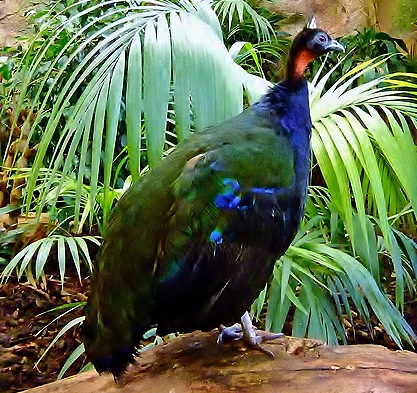 |
| (Photo from Animal Picture Archive) |
Common name:
Congo peafowl (en); pavão-do-Congo (pt); paon du Congo (fr); pavo del Congo (es); Kongopfau (de)
Taxonomy:
Order Galliformes
Family Phasianidae
Range:
This African species is endemic to the lowland rainforests of the Congo river basin, in the central parts of D.R. Congo.
Size:
These birds are 60-70 cm long and weigh 1-1,2 kg.
Habitat:
The Congo peafowl is mostly found in lowland primary rainforests, but also in other forests types, including dry forests, often near watersheds. They are present up to an altitude of 1.200 m.
Diet:
They have a fairly diverse diet, which includes various fruits and seeds, as well as insects and other invertebrate.
Breeding:
The breeding season of the Congo peafowl is variable, depending on local rainfall conditions. They are monogamous, apparently living in small family groups, and nest in a scrape or hollow in the ground. The female lays 2-4 eggs, which she incubates alone for 27-28 days. The chicks are precocious and leave the nest soon after hatching, but the parents take care of them for several weeks.
Conservation:
IUCN status – VU (Vulnerable)
This species has a large breeding range, but the global population is estimated at just 2.500-10.000 individuals. The population is suspected to be in decline owing to habitat loss and hunting pressure. Mining and the associated human settlement result in an increasing forest clearing which causes further logging, agricultural development and hunting.







